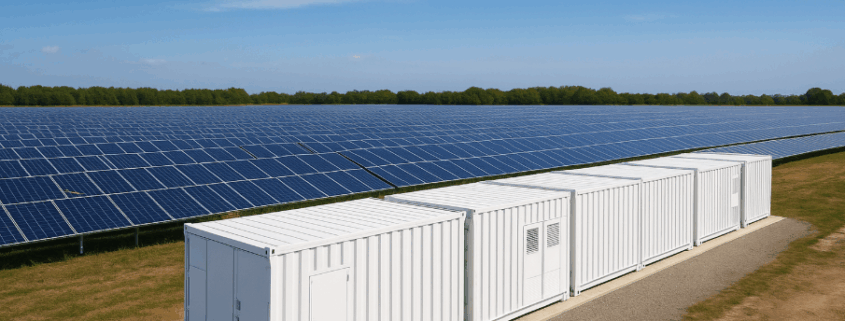10+ Advantages of Battery Energy Storage System (BESS) — Benefits for Grid, Businesses, and Renewables
Introduction: Why Talk About the Advantages of Battery Energy Storage System (BESS)?
The advantages of Battery Energy Storage System (BESS) are shaping the future of clean energy. As renewable adoption accelerates, the need for reliable, flexible, and scalable energy storage has never been greater. From utilities struggling with grid fluctuations to businesses facing high demand charges, BESS offers a transformative solution.
At Sunlith Energy, we help industries, communities, and utilities realize the full advantages of Battery Energy Storage System (BESS) by providing solutions designed for safety, scalability, and sustainability. This article explores over 10 detailed advantages, supported with practical examples, financial impacts, and future trends.
What is a Battery Energy Storage System (BESS)?
Before diving into the advantages of Battery Energy Storage System (BESS), it’s important to understand what it is.
A BESS is a system that stores electrical energy in rechargeable batteries and releases it when required. It usually includes:
- Battery modules (Lithium Iron Phosphate (LFP) or Nickel Manganese Cobalt (NMC)).
- Battery Management System (BMS) to ensure safety.
- Power Conversion System (PCS) to manage DC-AC conversion.
- Thermal management system to control temperature.
- Energy management software to optimize charging, discharging, and grid interaction.
👉 Learn how Sunlith integrates these components in our Energy Storage Systems.
1. Grid Stability: A Key Advantage of Battery Energy Storage System (BESS)
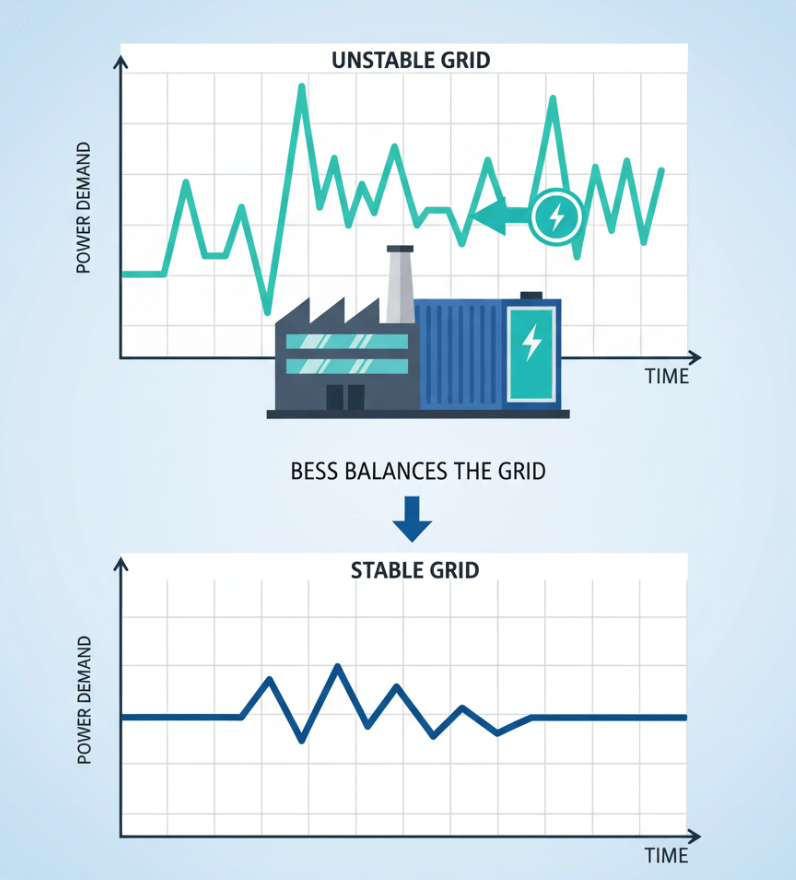
One of the greatest advantages of Battery Energy Storage System (BESS) is its role in stabilizing the electrical grid.
- Fast frequency response: BESS reacts within milliseconds.
- Voltage support: Keeps power quality consistent.
- Ancillary services: Replaces expensive fossil-fuel spinning reserves.
Unlike conventional power plants, which take minutes to respond, batteries act instantly, helping prevent outages.
🔗 Reference: IEA Energy Storage Report confirms that grid operators benefit from BESS deployment.
2. Renewable Energy Integration: Unlocking the Advantages of Battery Energy Storage System (BESS)
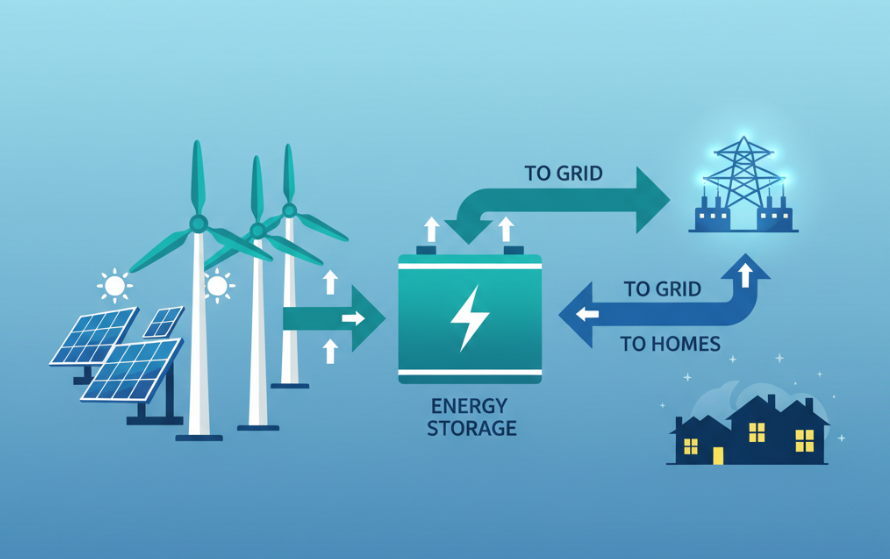
Solar and wind power are intermittent, which can cause reliability issues. One of the clear advantages of Battery Energy Storage System (BESS) is renewable integration.
- Store midday solar surplus → release in evening peaks.
- Smooth wind ramp-ups and sudden drops.
- Reduce renewable curtailment by capturing excess generation.
👉 At Sunlith Energy, we deploy hybrid systems combining solar/wind with BESS for firm, round-the-clock renewable power.
3. Peak Shaving: A Cost-Saving Advantage of Battery Energy Storage System (BESS)
For businesses, one of the most direct advantages of Battery Energy Storage System (BESS) is lowering electricity costs through peak shaving.
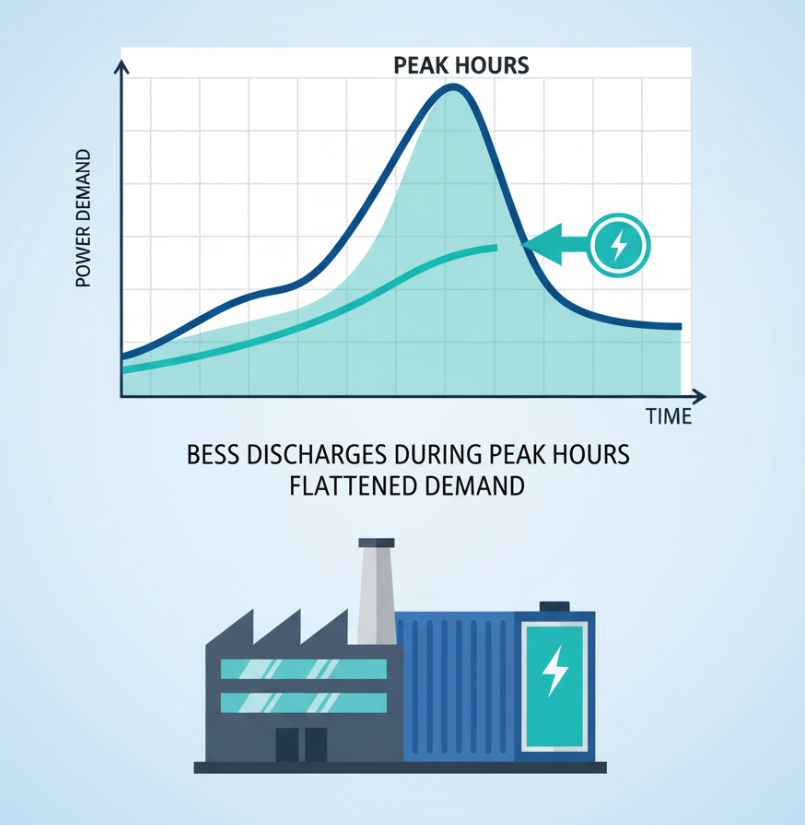
- Discharge stored power during peak demand hours.
- Reduce utility demand charges.
- Flatten facility load curves for smoother operations.
📌 Example: A commercial facility with a 5 MW peak demand can cut demand charges by 20–30% annually using BESS.
🔗 External Reference: U.S. DOE Demand Charge Management Study
4. Energy Arbitrage: Financial Advantages of Battery Energy Storage System (BESS)
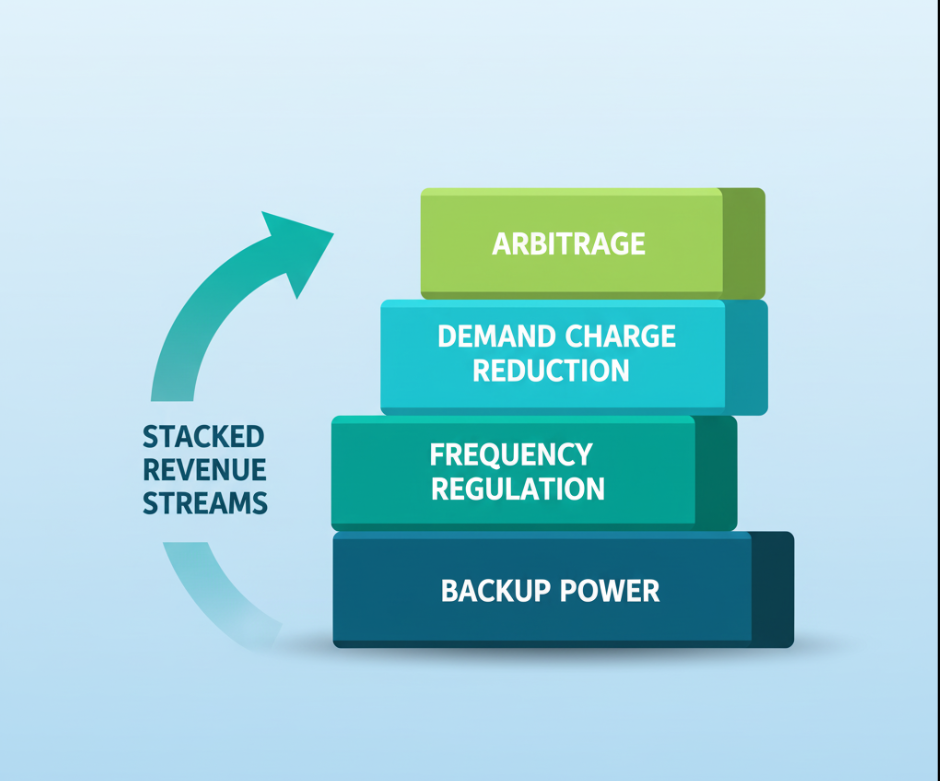
The advantages of Battery Energy Storage System (BESS) extend into financial markets through energy arbitrage.
- Charge when electricity is cheap (off-peak).
- Discharge when electricity is expensive (peak).
- Participate in wholesale markets for profit.
This strategy—combined with demand charge reduction and ancillary services—creates revenue stacking opportunities.
👉 Sunlith Energy’s AI-driven Energy Management Systems (EMS) automate these decisions for maximum returns.
5. Resilience: Backup Power as an Advantage of Battery Energy Storage System (BESS)

Another strong advantage of Battery Energy Storage System (BESS) is resilience.
- Provides seamless backup power during grid outages.
- Supports critical infrastructure like hospitals, data centers, and EV charging hubs.
- Operates in island mode with on-site renewables.
With more extreme weather events, the resilience advantage is invaluable for businesses and communities.
6. Grid Upgrade Deferral: Utility-Level Advantages of Battery Energy Storage System (BESS)
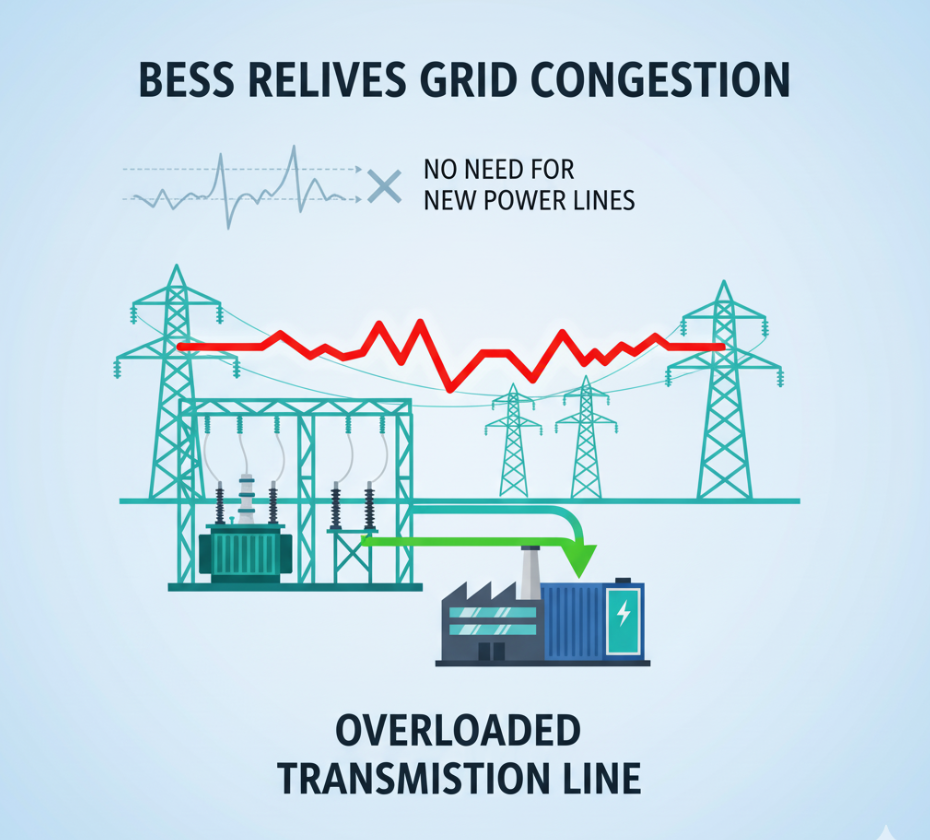
Utilities face expensive upgrades to handle peak demand. Another advantage of Battery Energy Storage System (BESS) is grid deferral.
- Place BESS near substations or congested nodes.
- Relieve stress on transmission and distribution infrastructure.
- Defer or avoid costly grid expansion projects.
🔗 External Reference: EPRI Grid Deferral Study
7. Power Quality: Technical Advantages of Battery Energy Storage System (BESS)
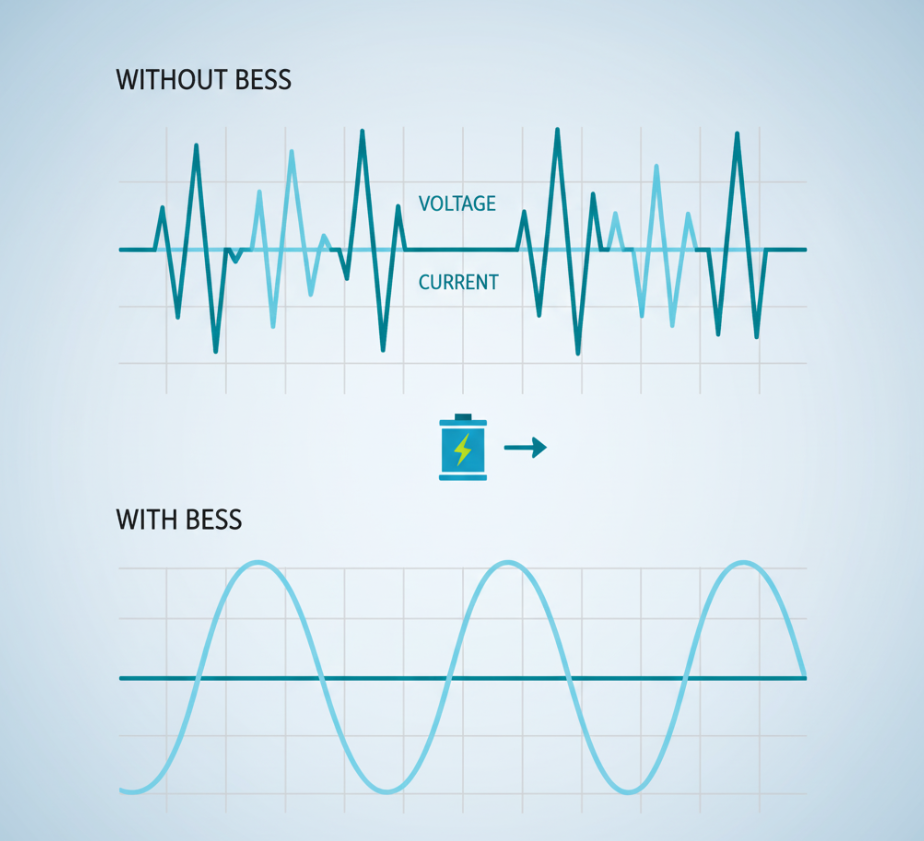
Power quality issues cause downtime and equipment damage. The advantages of Battery Energy Storage System (BESS) also include better power quality.
- Harmonic filtering.
- Reactive power support.
- Voltage stabilization.
For industries with sensitive equipment (like semiconductor manufacturing), this is a game-changing advantage.
8. Synthetic Inertia: A Modern Advantage of Battery Energy Storage System (BESS)
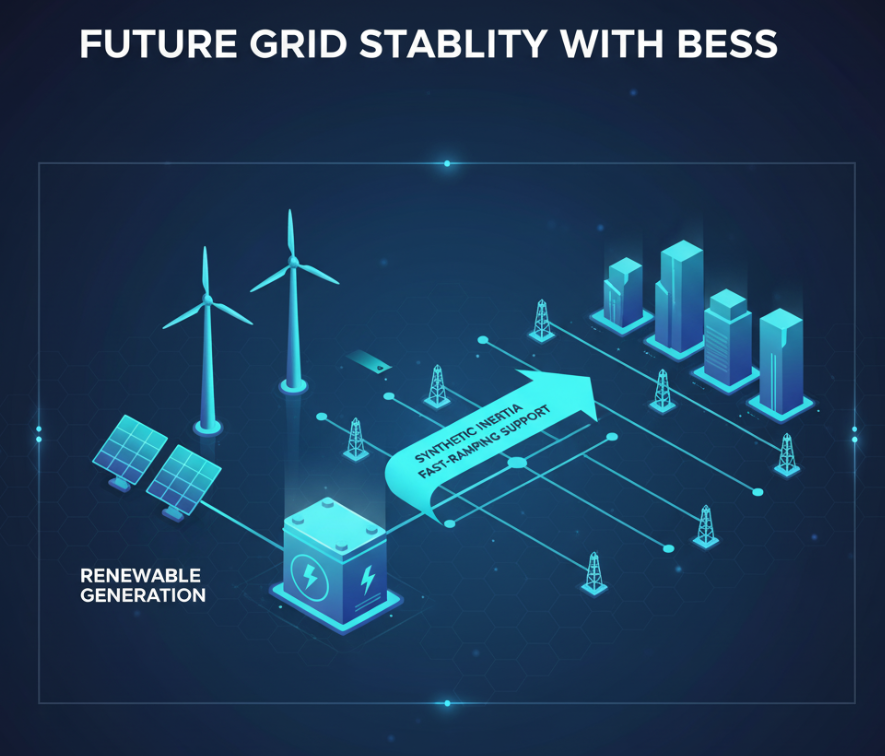
Traditional power plants provided inertia to stabilize the grid. One of the modern advantages of Battery Energy Storage System (BESS) is providing synthetic inertia.
- Advanced inverters mimic inertia.
- Fast ramping balances renewable fluctuations.
- Supports reliable, renewable-heavy grids.
9. Environmental Advantages of Battery Energy Storage System (BESS)
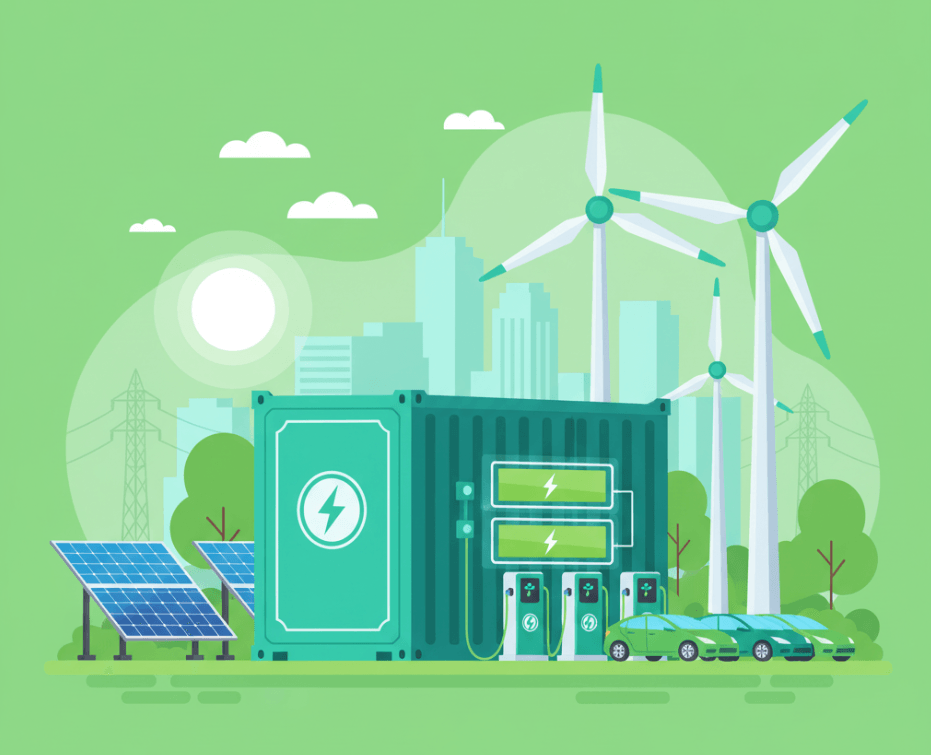
Beyond economics, the advantages of Battery Energy Storage System (BESS) extend to sustainability.
- Enables higher renewable penetration.
- Reduces reliance on fossil peaker plants.
- Supports EV charging hubs without straining the grid.
At Sunlith Energy, we prioritize LFP-based BESS solutions for safer, more sustainable performance.
10. Scalability: Flexible Advantages of Battery Energy Storage System (BESS)
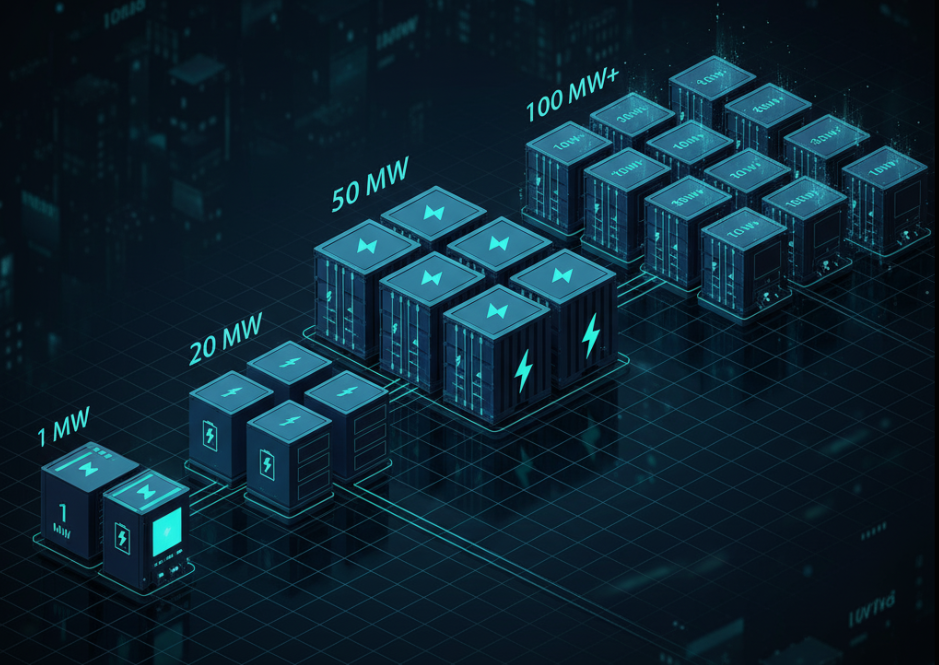
Finally, one of the most practical advantages of Battery Energy Storage System (BESS) is scalability.
- Systems range from 1 MW to 100+ MW.
- Modular designs enable expansion as needs grow.
- Standardized containers accelerate deployment.
This makes BESS suitable for homes, businesses, and utility-scale projects alike.
Sunlith Energy’s Role in Delivering the Advantages of Battery Energy Storage System (BESS)
At Sunlith Energy, we specialize in unlocking the advantages of Battery Energy Storage System (BESS) for clients across sectors. Our solutions are:
- Safe: UL/IEC certified with advanced fire suppression.
- Smart: AI-driven controls for optimization.
- Scalable: Tailored for C&I, microgrids, and utility-scale projects.
- Sustainable: High-efficiency, long-cycle-life LFP batteries.
👉 Explore our BESS Solutions.
FAQ
Q1: What are the main advantages of Battery Energy Storage System (BESS)?
A: The main advantages of Battery Energy Storage System (BESS) are grid stability, renewable integration, peak shaving, energy arbitrage, backup power, improved power quality, and scalability.
Q2: How does BESS save money for businesses?
A: By reducing demand charges, enabling energy arbitrage, and improving power reliability, BESS lowers operational costs.
Q3: How long do the advantages of Battery Energy Storage System (BESS) last?
A: A typical BESS lasts 8–15 years, depending on usage cycles, chemistry, and maintenance.
Q4: Is BESS safe?
A: Yes, with proper BMS, thermal management, and certifications like UL 9540, modern BESS are safe.
Q5: Who benefits most from the advantages of Battery Energy Storage System (BESS)?
A: Utilities, C&I facilities, renewable developers, EV charging hubs, and critical infrastructure.
Conclusion: Why the Advantages of Battery Energy Storage System (BESS) Matter
The advantages of Battery Energy Storage System (BESS) are multi-dimensional—economic, technical, and environmental. From stabilizing grids and enabling renewables to saving costs and enhancing resilience, BESS is the backbone of the future energy system.
At Sunlith Energy, we deliver tailored BESS solutions that unlock these benefits while ensuring safety, scalability, and sustainability.
👉 Ready to experience the full advantages of Battery Energy Storage System (BESS)? Visit our Contact Page today.


